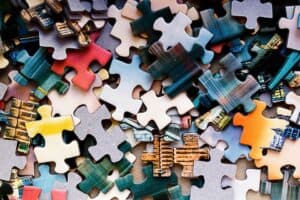What caused you to feel not good enough?
I could not have been more elated when, as a 13-year-old, one soaring leap into the long jump pit nabbed me the gold medal at the North Island School Athletic Championships. This achievement capped off a fabulous year that included a number of academic prizes and I was practically bouncing with pride when I walked on stage in front of 1350 kids to accept my awards.
Until the hissing began.
The low hum of disapproval started somewhere in the middle of the assembly hall and was quickly picked up and spread across the crowd until it felt like the entire hall was alight with criticism and rejection. My heart was thumping erratically. I could feel my pulse in my ears, deafening me. I disconnected from my body and yet somehow, made it across the stage. In that moment all of my suspicions about myself were confirmed. I was inherently wrong, completely flawed, utterly repulsive.
This primary experience of acute shame shaped me, defined me, and over time, almost broke me.
It anchored me deeply into the belief that just being me, and taking joy in who I was, was not ok. I quickly learned to shift and change myself, chameleon-like, into a shape and form that would keep others happy. My natural exuberance was quashed and my sense of self… well is was very obvious to me that I was not good enough for my peers, that I needed to be someone other than me.
Do you feel you’re not enough, just as you are?
If there is one thing I hear and witness more than any other in my business mentoring work, it’s the misbelief that so many women carry of “not being good enough”. This thought makes you acutely susceptible to falling into the Comparison Trap, more likely to experience Imposter Syndrome, and prone to keeping yourself “playing small” in your business, avoiding the perceived risks of higher visibility, expansion, and raising your rates.
Where does such a destructive and restrictive belief come from? And perhaps more importantly, how can you shift it?
Perhaps like me, you’ve heard that it’s our childhood experiences that have a crucial influence on who we become, with our beliefs and self-image largely being set down during the 0-10 period. I could see the truth in that, but for many years I’ve had a theory that my teenage experiences played a far more significant role in the disconnection from my sense of self-worth and gradual descent into addiction that define my story.
I wondered, could the teenage years be even more impactful, leave more indelible marks on our self-perception since our higher awareness meant what we were experiencing was being laid down in our conscious minds, rather than subconsciously? This is a question I’ve become more interested in exploring since my business mentoring work has been deepened by my interest in the topic of self-worth, first piqued when I read “I thought it was just me, but it isn’t” by the sublimely eloquent Brene Brown over 10 years ago.
When do we develop our sense of self?
I’m currently studying for a Certificate in Applied Neuroscience and Brain Health through the Neuroscience Academy run by the astute and fabulous Dr Sarah McKay. It’s an endlessly fascinating course and I’m approaching it through the lens of being able to add science-based insights into understanding and helping my clients.
In the third module, called WIRE, we began to explore how our experiences shape our brains and how our brain is structured to change itself to reflect the goals and challenges it encounters. Our brain may reach adult size in early childhood, but micro-architectural refinement continues until early adulthood.
There are critical periods, highly sensitive periods of development where our brain requires very precise experiences to wire the regions appropriately. For example, young children must hear spoken language before they are 2 years old. If not, this lack of exposure will mean they’ll experience difficulties with language going forward.
This made sense, but the next stage we covered made even more sense and aligned with my own teenage years.
The adolescent years are when the areas in our brain used for higher cognition functions are in their most sensitive period. Our critical thinking skills, ability to reflect and develop considered responses to what we see, feel and hear are coming online. It’s at this time that our brain is becoming fully capable of analysing our own experiences. It’s also at this stage of life when we are exquisitely sensitive to our social experiences.
Erik Erikson, a psychoanalyst, and professor at Harvard tells us in psychology’s most popular and influential theory of human development, the Stages of Psychosocial Development, that in adolescence we’re working through the stage of “Identity versus Role Confusion”, searching for personal identity and a sense of self. Thus, it becomes easier to understand why highly emotional experiences, especially negative ones, and especially ones that involve your peer group and have you standing out when you are so desperate to fit in, can have a lasting impact on your sense of self.
Shame is a social construct. It’s a learned response. We cannot experience it alone. But we sure as heck analyse it alone, likely again and again. We become exquisitely sensitive to it and unfortunately, what you look for, you find, and what you focus on, grows. I added layers of self-doubt over that initial, acute experience, continuously confirming my identity of someone who did not measure up. These misbeliefs morphed into a blanket “not good enough” over the years that followed.
Can we change our beliefs about ourselves?
Fortunately, adulthood brings with it the ability to better regulate our emotions and to notice, intercept and challenge beliefs and patterns of behaviour that no longer serve us and stories we hold about ourselves that are simply not true.
Perhaps, like me, you recognise that experiences you had in those sensitive teen years have stuck like burrs in your memory. Perhaps that general feeling of not being good enough, a tendency to compare yourself to others, the sense of being an imposter in your own world are getting in the way of you being the business owner, practitioner, consultant and service provider you know you want to be?
The good news is that it is absolutely possible to change. Neuroplasticity tells us so. Our own experiences tell us so. It does take focus and commitment, it does require your emotional investment, the willingness to change, and repetition. But it is absolutely possible.
The first step is to become aware of what it is that you want to change. What’s holding you back? What’s getting in the of who you want to be and what you want to do? Ask yourself, what’s the story about yourself, the misbelief that gets in the way?
Once you have that awareness, coupled with the willingness to take action, to change, you are on your way. Begin by developing a new desired identity for yourself and live forward, into that version of yourself.
I’m a person who takes care of my health and well-being
What does a person with that belief do? Start doing that.
I’m a business owner who is committed to confidently sharing my knowledge to help others.
What does a person with that belief do? Start doing that.
I cannot stress enough that some situations need professional help. I could not get sober without help, and when I asked for that help, everything changed and I will soon celebrate 16 years in the recovery movement. Similarly, I have spent time with counsellors and psychologists over the years to help me to see myself more clearly, to affirm myself, and build a new positive self-image. I’ve also invested in beautiful, expansive support from coaches, mentors, books, and programs of self-study that have all helped me to flourish, so I can, in turn, play the same role as a business mentor and self-worth educator for others today.
You are worthy. You are a unique, sensational, complicated, talented, learning, growing, beautiful human who is absolutely, without question, enough. Now go out into the world today and make your contribution with that truth fuelling you!











Hi Angela, You are also astute and eloquent! You provide a clear overview of how we can move forward with kindness towards ourselves once we understand the complexity within us as humans.
Lian, that’s a lovely compliment – thank you! And you are so right about the need for kindness. Self-compassion is at the heart of my Self-Worth Trilogy – without it, growth is unlikely, but when it is present when we act as a safe harbour for ourselves, we are far more likely to take the risks associated with being out of our comfort zone so we can fully BE our beautiful complex selves…
Thank you so much for this blog post Angela! It’s one of the best I’ve read this year because it really hits home to me! I have always felt the teenage years were pivotal to my sense of worth, not so much with my peers, but certainly within my home environment where “worthiness = high achievement”.
I absolutely love the part about “developing a new desired identity for yourself and live forward, into that version of yourself.” And I’m going to adopt “What does a person with that belief do? Start doing that” as my new mantra of choice!
Hey Cyndi, I’m delighted this post resonated with you! It was such a lightning bolt moment when I connected these dots and I’m sure our respective new levels of awareness will be so useful as we continue this journey into our next chapters… with our new identities, mantras and actions supporting us along our growth edges!